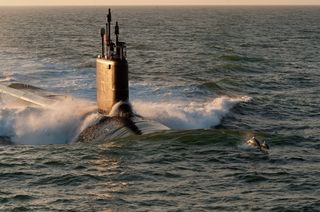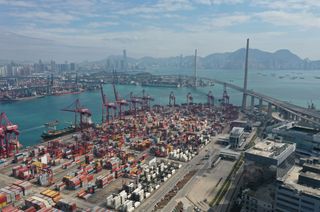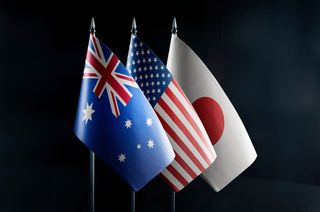The Australian
By Tom Switzer
The other day, a friend and Liberal Party statesman told me I was “to the left of Tanya Plibersek”. He meant it tongue-in-cheek, but his reference to my public criticisms of the new US-led mission to destroy the so-called Islamic State nonetheless reflects the concerns of several conservative mates.
Meanwhile, Malcolm Fraser, Mark Latham and Phillip Adams have personally praised me for warning about the unintended consequences of airstrikes in Iraq’s Sunni heartland.
Imagine my surprise! I am known as a culture warrior who once edited this newspaper’s opinion page and contested preselection for a safe Liberal seat. A Texan-born Dallas Cowboys fan who has a congenital weakness for American culture. I watch Fox News, read The Wall Street Journal editorial page, wear Richard Nixon ties and am persona non grata whenever I appear on Q&A.
Add to this my strong support for our government’s tough anti-terror laws against the very real threat of Australian Islamic jihadists, and it is clear that I am hardly the reincarnation of Jim Cairns. And yet my support for America and what passes for the conservative movement in Australia has been questioned during the debate over Iraq.
Mind you, I have long believed that in the absence of the Cold War’s defining conditions even ideas as basic to modern politics as Left and Right have not made much sense in foreign affairs.
In the US, it’s Republican presidential candidates Pat Buchanan and Ron Paul who’ve picked up anti-Vietnam War Democrat George McGovern’s plea: “Come home, America.” And although right-wing partisans supported the Iraq war a decade ago, conservative intellectuals and columnists were among George W. Bush’s persistent critics.
The confusion and ferment are real enough. What distinguishes me from Christine Milne — another critic of the third Iraq war in as many decades — is not just that I am a strong supporter of Australia’s alliance with what Bob Menzies called “our great and powerful friend”. I also worry that although America remains, in a real sense, the last, best hope for mankind, there is a danger that the US will damage its national interest by getting bogged down (again) in the mess-in-potamia.
We are told that the Islamic State represents a real and present danger around the world. If so, why the reluctance to commit ground troops?
Besides, US intelligence agencies have reached a different conclusion. According to The New York Times, some US officials and terror experts believe “the actual danger has been distorted in hours of television punditry and alarmist statements by politicians”.
We are talking about a group with fewer than a US army division of 20,000 troops (with no air force or navy) that can’t match a decent military with resolve. It can’t topple Assad by itself, or Jordan, or the Shia regime in Baghdad (whose forces, together with its Iran backer, outnumber Islamic State by 100 to one).
Writing in The Washington Post, Middle-East expert Ramzy Mardini points out that the Islamic State’s “fundamentals are weak”, that its “extreme ideology, spirit of subjugation and acts of barbarism prevent it from becoming a political venue for the masses” and it’s “completely isolated, encircled by enemies”. Yes, the group is a bunch of brutal thugs — beheadings are especially grisly — but we should not allow its choice of execution methods to drive Western strategy.
Moreover, there has been little substantive public debate in the US and elsewhere about the unintended consequences of escalating our military campaign in Iraq and Syria. A bombing campaign might go some way towards degrading the Islamic State, but it would probably make the US even less popular in the Sunni heartland and maybe aid the jihadists’ recruiting. Why play into their hands?
We are told the Islamic State is on the rampage. But while it’s true the locals in Sunni towns such as Mosul, Tikrit and Fallujah did not resist jihadist intervention during the northern summer, the reason is not as clear-cut as the hawks suggest. Iraq’s Sunnis, broadly speaking, fear the sectarian Shia-led regime in Baghdad more than they do the Sunni militia groups.
Moreover, the Islamic State has suffered four straight defeats: Kurdistan, Mosul Dam, Mount Sinjar and Amerli. No doubt the US airstrikes in the humanitarian mission helped, but it was the Shia militia, the Kurdish Peshmerga and Iranian military officers that were among the local forces helping inflict defeats on the jihadists.
Which brings me to the central point: it’s the regional actors that are ultimately going to contain or defeat the Islamic State in Iraq and Syria. The more we intervene, however, the less incentive the locals have to improve their conventional forces and work together.
Remember the US spent more than a decade using military power to try to organise the politics of this ethnically and tribally divided medieval society. But the costs in blood, treasure and credibility were not commensurate with the investment. The idea that airstrikes, backed with some special forces, can eliminate Sunni terrorism is fanciful.
Finally, the successful raids against Australian Islamist extremists in Sydney and Brisbane show that the best response to this threat lies primarily in intelligence, counter-terrorism measures and homeland security. But don’t expect my new friends Milne and Adams to agree.
This article was originally published in The Australian




